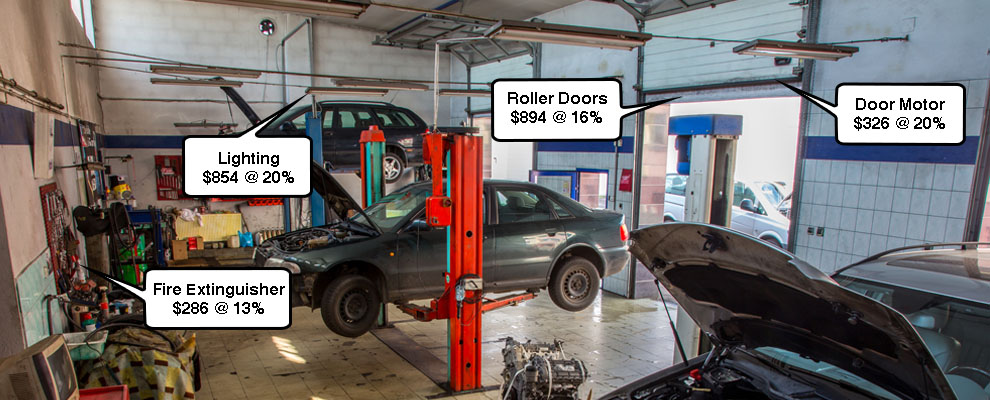Technical FAQ
Frequently Asked Questions

Frequently Asked Questions
How does your service differ if we build a new house?
There are two ways that a house is normally built.
The first is paying a building contractor a contract price to build the house on a piece of land. In this situation Valuit apportions the contract price into the various asset categories. Any items purchased over and above the contract price must be recorded separately by your accountant. These items are claimed based on your receipted costs. Valuit must be made aware of any items over and above the contract price.
The second situation is where you build the house and actually manage the project paying individual contractors etc. In this instance your depreciation will be based on each individual invoice and it is a matter of allocating the invoices to the correct depreciation category. This can be done very simply by yourself and your accountant. Where you have paid for labour or items and do not have a receipt you will not be able to include these costs for depreciation.
Do I have to pay back the depreciation when I sell the property?
Some of it you may. Depreciation is allowance for assets decreasing in value due to use. Items such as carpets and blinds do decrease in value and depreciation can generally be minimised on these sort of assets. The reason that most properties increase in value is due to the demand for land and location. Depreciation should be viewed as a bonus and any depreciation repaid can be viewed as an interest free loan. Think of this also, what will $100 buy you today and what will it buy you in 15 years? The time value of money is also an important point to note.
This was a major factor for properties purchased prior to 1 April 2011 but since this date and the removal of depreciation on the building structure, it is generally accepted that depreciation claimed on chattels etc has occurred and any amount repaid will be nominal, if any at all.
If Valuit is completing a Valuation for Depreciation purposes why does Valuit require a Registered Valuation or Rating Valuation and which one do they need?
The valuation completed by Valuit is completely different to a Registered Valuation or Rating Valuation. Valuit completes an apportionment of your property’s purchase price into all of the various assets for depreciation. To enable us to do this we must apply a formula that is set by the IRD to determine the split between Land and Improvements (Buildings, carpets etc). This formula uses a Registered Valuation or Rating valuation. We are required by the IRD to use the valuation that is most current prior to purchase. We cannot use a valuation completed after purchase. If you did not have a Registered valuation completed we can use the Rating Valuation. If you do not have a copy of this, Valuit is able to obtain these records for a nominal fee.
We have done renovations to the property how does this affect the report?
Renovations undertaken to the property prior to our inspection can cause problems. Depreciation is based on what you pay for the property and therefore we are completing our apportionment of the property as at the date of settlement. Consequently we must complete our inspection based on the property as it was prior to any renovations. If it is minor cleaning and painting there is no major issue as long as we are informed. If there has been replacement of assets such as carpets, lights etc this can cause problems. To enable us to complete the report in this instance we must have proof of what the asset was like. This could be in the form of photos, video, or even the removed asset. We must ensure that we exclude these items as they are in addition to your purchase price. Any cost incurred in completing renovations must be provided to your accountant who will incorporate them into your accounts accordingly, this will also ensure that you get the correct write offs for the items you have replaced.
Does it make a difference at what point of ownership we complete renovations?
Renovations carried out immediately after purchase will be Capital Improvements as the property has not been available for rent. All expenditure will need to be capitalized and therefore depreciated. Where that expenditure is on items that are now deemed part of the building e.g. kitchens and bathrooms, there will be no tax relief on that expenditure as it attracts a depreciation rate of 0%. There is no issue with the replacement of, for example carpets, curtains or a stove as these all have a depreciation rate of 25%.
In this instance consideration, therefore needs to be given as to the best timing of this expenditure and a good place to start is to have a discussion with your Accountant. It may be more beneficial to accept a lower rent for a period of time and defer some of the expenditure to another year.
Conversely the property may have been purchased with the explicit intent of a capital injection to maximize rental return and the tax treatment of the expenditure is of no consequence.
You asked me if I was transferring the property into a new ownership structure and when I said yes you asked me to confirm with my accountant if the report is to be completed based on the Original purchase price or Transfer price. Why?
The Associated Party Rule is very important when you are transferring the property from one entity to another, say Private name into a Company. The Associated Party Rule states that depreciation must be based on the lower of the original purchase price or the transfer price. Generally the lower will be the original purchase price. In some circumstances accountants can apply to IRD to have your depreciation assessed based on the transfer price. This is something you must confirm with your accountant as we do not want to complete a report for you on the wrong basis.
I inherited a property, how do I claim depreciation?
If the property has been inherited, the cost price for depreciation purposes is its market value at the time the property is transferred to the new owner.
The exception is for a spouse, civil union partner, or de facto partner where transfer is at cost or adjusted tax value.
How do we deal with a property where we have made an insurance claim?
Assets lost or destroyed
If you receive an insurance payout for an asset which is lost or destroyed, it’s treated as though you had sold the asset for the amount of the insurance payout:
• If the insurance payout is more than the asset’s adjusted tax value but less than its original cost, you must include the difference between the insurance payment and the adjusted tax value as taxable income.
• If the insurance payout is more than the asset’s adjusted tax value and also more than the asset’s original cost, you must include the difference between the cost and the adjusted tax value as taxable income. The difference between the insurance payout and the asset’s cost is a capital gain and not taxable.
• If the insurance payout is less than the asset’s adjusted tax value, you can claim the difference as if it was a loss on sale. Remember, if the asset was a building, any loss on sale isn’t deductible.
Damaged assets
If you receive an insurance payout to repair a damaged asset, you don’t include it as income and you can’t claim the cost of the repairs which are covered by the insurance. However, please note the following:
• If the insurance payment is more than the cost of the repairs, you’re required to deduct the excess from the asset’s adjusted tax value. If this makes the adjusted tax value a negative amount, you’re required to include this amount in your gross rental income.
• If the insurance payout is less than the cost of the repairs, you can deduct the extra cost of the repairs from your taxable income. Remember to keep all invoices relating to the repairs.
To keep up to speed with the property market and depreciation sign up to our newsletter – “Valu in review”
